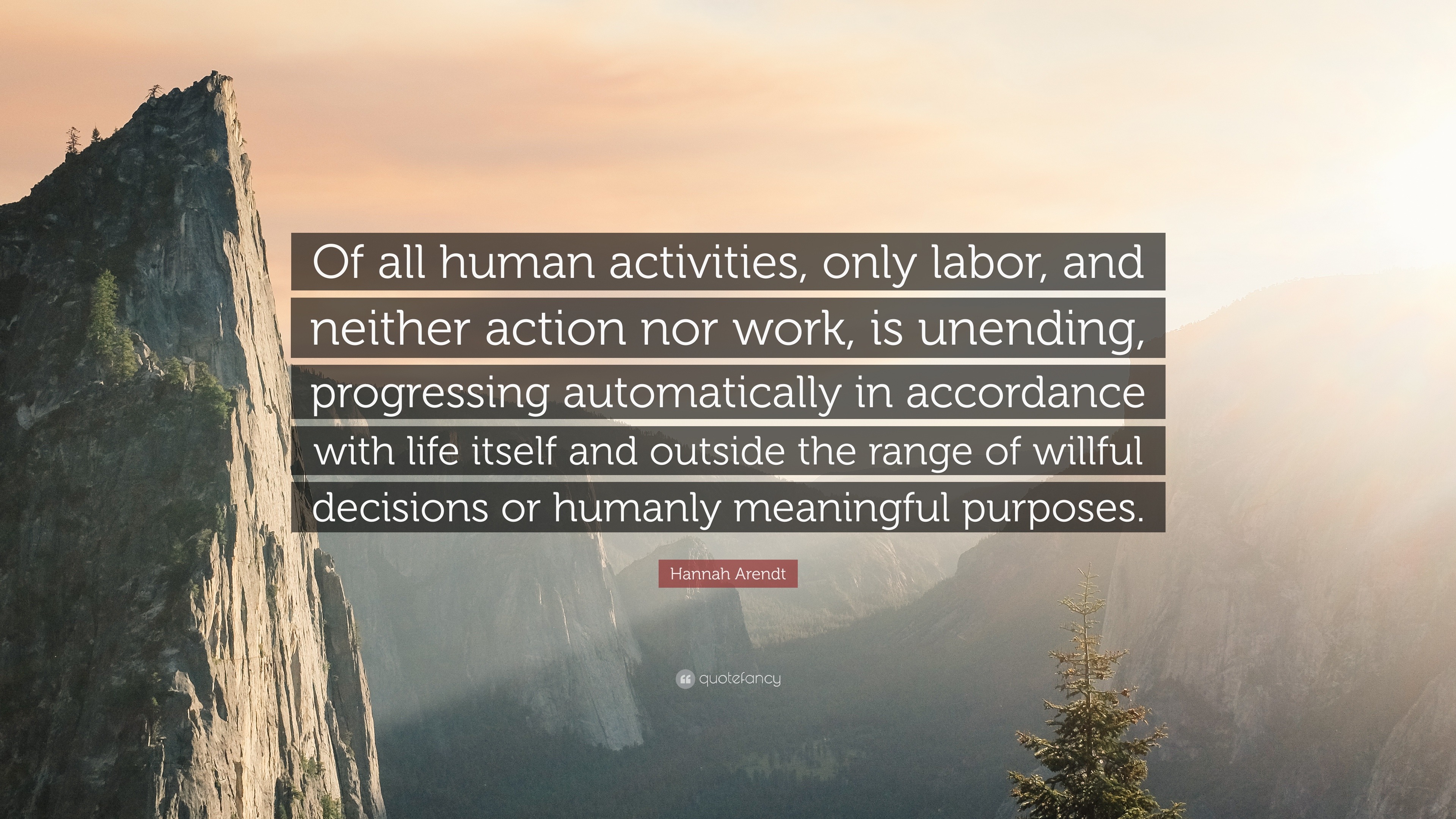The philosopher Hannah Arendt (1906-1975) has made many contributions to the philosophy of post-war 20th century Europe. But here we want to focus on one of her questions: What is it that makes us human? How does our humanity relate to the work we do every day? Is there work that promotes our humanity and work that degrades it? And how can we know one from the other?
If you like reading about philosophy, here’s a free, weekly newsletter with articles just like this one: Send it to me!
Hannah Arendt says: If we look at the work people do, we can clearly identify three different types. These different types of work also have very different effects on our humanity.
First comes what she calls “labor.” Labor is work that we do in order to survive. Washing one’s clothes, for instance, or cooking, or shopping. If we look at labor, it quickly becomes clear that it never ends. You can slave all day just washing things, and shopping, and cooking, and cleaning the house, but the next day, or the next week, you’ll have to do the same chores all over again. Labor sustains life, but it does not produce any result beyond that. Nothing remains from the once clean house after it has become dirty again. And if you clean it again (as you must) a week later it will look dirty once more. Labor of this kind is hardly the stuff that elevates one’s human qualities. It is slaving away, like an animal does, and it bears no fruits in the long term besides survival.
Next comes “work.” We use the word sometimes to describe things, products: A work of art. Her life’s work. A writer’s collected works. Working is a process that culminates in a piece of work, an outcome, something tangible, something that will last. Working creates value beyond mere survival. Also, working creates a heritage. Something to pass on to the next generation. Ancient temples, churches, statues, pictures, books, songs, symphonies. The cultural heritage of mankind is the product of work.
“Are you working?” – “No, I’m laboring.” You get the point.
In our society, work is threatened by labor. A world that wants to consume things fast and cheap favors labor over work. Why make things permanent? Capitalism rewards the disposable. Buy a fridge and throw it away after the warranty expires. Buy a phone and throw it away after a new model comes out. Thus, the work of making a fridge, or phone, is degraded to labor, since the fruits of the work lose their permanence. For Hannah Arendt, permanence is the enemy of …
Read the full article which is published on Daily Philosophy (external link)





